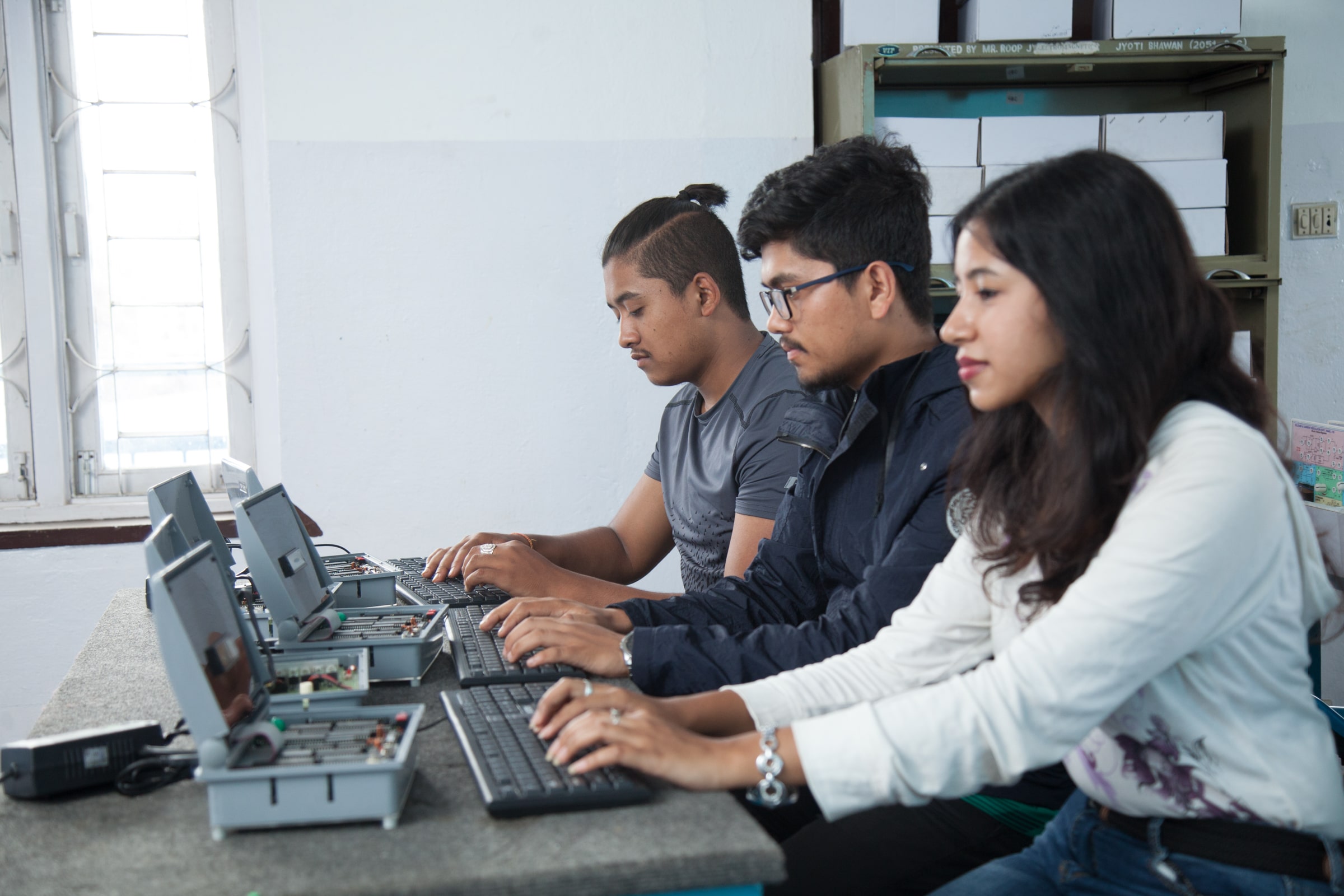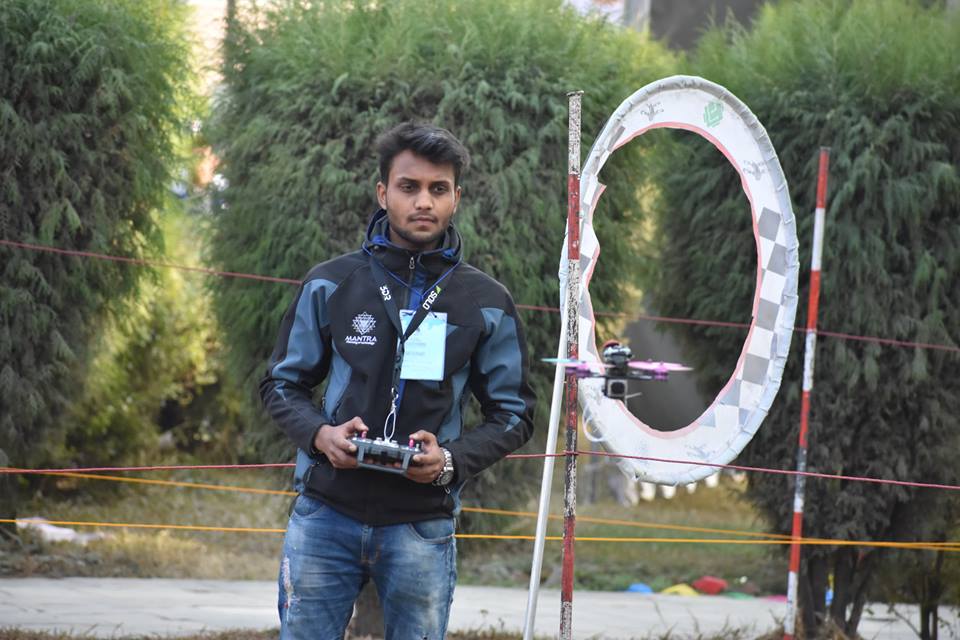Computer Engineering
Overview
Computer Engineering is a four-year Bachelor program in Engineering offered by IOE, TU. This course deals with the principle of computing techniques that involves knowledge of the development of Software for Applications ranging from simple mobile applications to sophisticated satellite software systems.
Objectives
- To foster a problem-solving mindset and encourage students to tackle real-world challenges using innovative technological solutions.
- To develop interdisciplinary skills that bridge the gap between hardware and software, preparing graduates to excel in diverse fields and industries.
- To ensure adaptability in a rapidly evolving industry by keeping students abreast of the latest advancements in hardware, software, and emerging technologies.
Scope
The scope of Computer Engineering is extensive, covering a broad range of topics related to the design, development, and integration of computer hardware and software systems. Computer engineering is at the intersection of electrical engineering and computer science, and it plays a critical role in various industries.
KEY AREAS
-
Digital Systems and Logic Design
-
Computer Architecture
-
Microprocessor and Embedded Systems:
-
VLSI (Very Large Scale Integration)
-
Operating Systems
-
Computer Networks
-
Software Engineering
-
Data Structures and Algorithms
-
Artificial Intelligence and Machine Learning
-
Robotics and Automation
-
Internet of Things (IoT)
-
Computer Graphics and Visualization
-
Cloud Computing
-
Human-Computer Interaction (HCI)
-
Cybersecurity
- Digital Circuit Design
- Logic Gates and Combinational Circuits
- Sequential Circuits
- Finite State Machines
- Central Processing Unit (CPU) Design
- Memory Systems (RAM, ROM, Cache)
- Instruction Set Architecture (ISA)
- Parallel and Distributed Systems
- Microcontroller and Microprocessor Design
- Embedded Systems Programming
- Real-Time Systems
- Integrated Circuit (IC) Design
- FPGA (Field-Programmable Gate Array) Design
- ASIC (Application-Specific Integrated Circuit) Design
- Kernel Design and Development
- Process Scheduling
- Memory Management
- File Systems
- Network Architecture and Protocols
- Network Security
- Wireless and Mobile Networks
• Software Development Life Cycle (SDLC)
• Software Design and Architecture
• Software Testing and Quality Assurance
- Design and Analysis of Algorithms
- Data Representation and Storage
- Sorting and Searching Techniques
- AI Algorithms and Techniques
- Neural Networks and Deep Learning
- Natural Language Processing (NLP)
- Expert Systems
- Computer Vision
- Robotics Design and Control
- Sensor Integration
- Human-Robot Interaction
- IoT Architecture and Protocols
- IoT Devices and Applications
- Graphics Rendering Techniques
- Virtual Reality (VR) and Augmented Reality (AR)
- Data Visualization
- Cloud Architecture and Services
- Cloud Security and Management
- User Interface (UI) Design
- User Experience (UX) Design
- Security Protocols and Mechanisms
- Ethical Hacking and Penetration Testing
Careers
- Computer Hardware Engineer
- Computer Software Engineer
- Embedded Systems Engineer
- Network Engineer
- Telecommunication Engineer
- Systems Analyst
- Computer Vision Engineer
- Robotics Engineer
- Artificial Intelligence (AI) Engineer
- Web Developer
- Database Administrator
- Cybersecurity Analyst
- Game Developer
- Mobile App Developer
- Cloud Solutions Architect
- Firmware Engineer
- DevOps Engineer
- NLP Engineer
- IT Consultant
- System Administrator
- Project Manager
Major Achievement by Students
- 2nd Position Child App Nepal – 2014
- 2nd Position 11th National Technical Festival LOCUS – Software Competition – 2014
- 3rd Position 10th National Technical Festival LOCUS – Software Competition – 2013
- 1st Position 9th National Technical Festival LOCUS – Software Competition – 2012
- 3rd Position Locus Code Camp – 2011
Course Structure
- Engineering Mathematics I
- Computer Programming
- Engineering Drawing I
- Engineering Physics
- Applied Mechanics
- Basic Electrical Engineering
- Engineering Mathematics II
- Engineering Drawing II
- Basic Electronics Engineering
- Engineering Chemistry
- Fundamentals of Thermodynamics & Heat Transfer
- Workshop Technology
- Engineering Mathematics III
- Object Oriented Programming
- Electric Circuit Theory
- Theory of Computation
- Electronics Devices and Circuits
- Digital Logic
- Electromagnetics
- Electrical Machines
- Numerical Methods
- Applied Mathematics
- Instrumentation I
- Data Structure and Algorithm
- Microprocessor
- Discrete Structure
- Communication English
- Probability and Statistics
- Software Engineering
- Instrumentation II
- Computer Organization and Architecture
- Data Communication
- Computer Graphics
- Engineering Economics
- Artificial Intelligence
- Object Oriented Analysis and Design
- Embedded Systems
- Operating System
- Database Management System
- Minor Project
- Project Management
- Organization and Management
- Energy Environment and Society
- Computer Networks
- Distributed Systems
- Digital Signal Analysis and Processing
- Elective I
- Project (Part A)
- Engineering Professional Practice
- Internet and Intranet
- Information Systems
- Simulation and Modeling
- Elective II
- Elective III
- Project (Part B)
- Satellite Communication
- Data Mining
- RADAR Technology
- Biomedical Engineering
- Broadcast Engineering
- Avionics
- Optical Fiber Technology
- IPV6
- Remote Sensing
- Telecommunication
- Agile Software Development
- Enterprise Application Design
- Advanced JAVA Programming
- Image Processing and Pattern Recognition
Field Visits
- Pokhara (Hydropower, Cable car)
Testimonials










